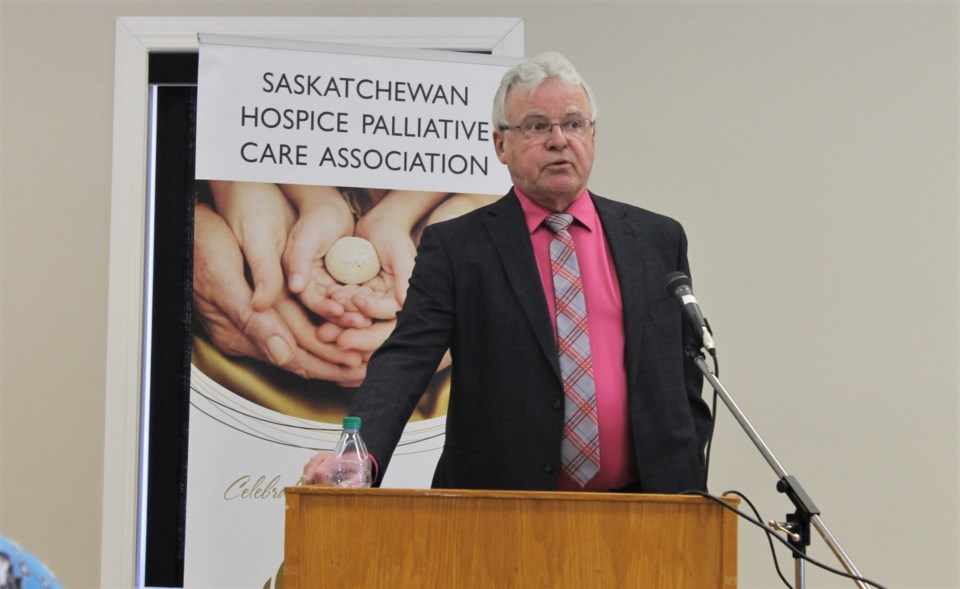Sandy Mahon, the registrar with the Funeral and Cremation Service Council of Saskatchewan, spoke to the attendees of the Saskatchewan Hospice Palliative Care Association (SHPCA) roadshow to clear up some questions about funerary rights here in the province.
Mahon said that the council receives numerous questions from families about what they can and cannot do in terms of funeral rights, and outlined some of the legal intricacies surrounding funeral rights and cremation.
Firstly, one needs a specified permit to transport human remains and not just anyone can bury a body, as it is illegal to do so outside of a registered cemetery plot without a specified burial permit.
These necessary permits can be obtained by individuals other than funeral homes and cemeteries, but it is often difficult to do.
However, cremated remains have no restrictions in terms of what can be done with them. Because Saskatchewan has some of the strictest regulations regarding the cremation process, cremated remains are sanitized and not considered biohazardous material.
Those providing funeral services without a licence can only do so if they are not paid or remunerated in any way. This means that funeral homes and death midwives or doulas must have a licence to provide services.
Funerals don’t have to take place in a funeral home, if the proper arrangements are made, and many people are looking into what is called a green burial — an increasingly popular practice of environmentally-sustainable burial that avoids traditional embalming and non-biodegradable materials.
There are green burial plots available in Saskatchewan, although they are limited. For those interested in non-traditional funerary practices, the Canadian Integrative Network for Death Education and Alternatives website is a useful resource, as is the Green Burial Society of Canada.
Saskatchewan was also one of the first provinces to offer a new form of cremation called alkaline hydrolysis, which is currently available in Swift Current and Prince Albert.
The process uses liquid rather than fire to break down the synthetic material of the body, leaving only bones and a biodegradable paste that is sanitary, environmentally safe, and able to be disposed of either through the sewer system or in a garden or green space.
Mahon also noted that it is important to know that only a relative of the deceased can authorize cremation, even if there is proof of the deceased’s wishes.
Legal restrictions of funeral practices can be found in the Funeral and Cremation Services Act, which was last reviewed by the provincial government in 2001.
For questions about funeral rights, Mahon encourages families to contact the Funeral and Cremation Service Council of Saskatchewan either by calling 1 (306) 584-1575 or emailing [email protected].




